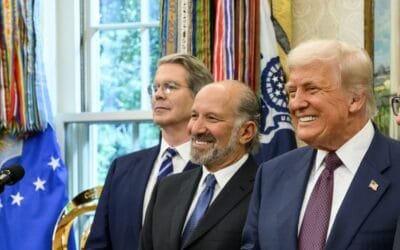“More light!” were the last words of Johann Wolfgang Goethe, the German writer, more than 250 years ago. I agree (both literally and symbolically), particularly at this time of the year when we approach the winter solstice. And thanks to Thomas Edison, the inventor of the incandescent light bulb, we can have plenty of inexpensive electric illumination even in the dark days of winter. At about 30 cents a piece, incandescent bulbs are a truly affordable light source. Unfortunately, the saga of government interference with the market and in our lives continues: the incandescent light bulbs will be banned in Canada, starting in January 2014. See the story by Terence Corcoran here. (In the United States the 100 watt incandescent bulbs have been banned since 2012, and the 60 watt and the 40 watt bulbs are also to be phased out, starting in January as well. Canada will follow suit a year later).
Thanks to ardent lobbying by the environmentalists, the Canadian government has decided that incandescent bulbs are not energy-efficient enough and therefore not good for people and the environment (whose environment are they talking about?) and is therefore following the European-initiated regulatory clamp-down on the incandescent bulb. Why should we be concerned?
Every time the government imposes a regulation on the market, it violates our individual rights and diminishes our ability to survive and flourish. You may think it is not worth getting excited about light bulbs, relatively inexpensive items. But it is the principle that we should be concerned about. Government cannot bring the best possible products into existence through its regulation, let alone determine what is good for the citizens. Only the markets can do that. The case of the light bulbs is a perfect illustration.
In their wisdom, regulation-happy governments everywhere initially promoted and used rebates to subsidize the sale of compact fluorescent light bulbs (CFLs). The CFLs were touted as the ideal energy efficient alternative (they consume about 75% less energy than incandescent bulbs). Now the sales of the CFLs have peaked due to concerns with their mercury content and their performance (harsh light and no dimmability, for example). Another catch is that the CFLs retail for about 20 times more than the incandescent bulbs. The other innovations spurred by the government ban, the LED bulbs and the incandescent halogen bulbs, suffer from the same problem: they are 100 and 7 times more expensive ($30 and $2, respectively), while the energy savings they offer are only 80% and 30%. The conclusion: the projected energy efficiency and associated savings have failed to materialize, while people are forced to spend much more on light bulbs instead on something else of their choice, for no or negligible benefits.
The proper role of the government is not to tell companies what to produce and sell and to consumers what to buy. A free market is needed to find optimal solutions for the best—least expensive, most efficient, highest quality—products and services. The proper role of the government is to make a free market possible by protecting our individual rights against physical force and fraud, including the right to produce and trade freely. That would make Goethe’s dying wish to come true: there would be more light in the world, and we would be better able to choose and achieve our values—values that make our lives worth living.




